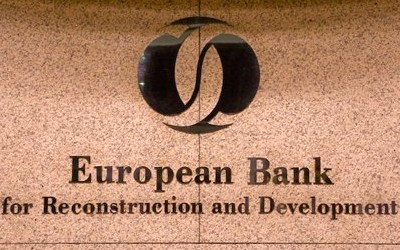AKIPRESS.COM -  The continuing crisis between Russia and Ukraine is weighing on the economies of the EBRD region, with only a modest recovery expected in 2015 after a sharp slowdown in growth this year.
The continuing crisis between Russia and Ukraine is weighing on the economies of the EBRD region, with only a modest recovery expected in 2015 after a sharp slowdown in growth this year.
New forecasts from the EBRD are revised down slightly compared with earlier predictions in May. The Bank’s latest economic report says, "The volatile security situation in Ukraine makes the forecasts exceptionally uncertain."
The Bank’s economists also issue a stark warning, "Permanently higher military spending in the transition region over the medium term, in response to the renewed geopolitical risks, could erode the peace dividend from the dissolution of the Soviet Union.”
“Just when national governments remain financially strapped in the wake of the global financial crisis, any new build up in military spending will be an additional fiscal burden that will stand in the way of the recovery and economic reforms for the future,” the EBRD’s Chief Economist Erik Berglof said.
“A removal of the peace dividend would be a further blow to a generation that has sought a change for the better,” he added
The report sees growth in the whole region slowing to 1.3 per cent in 2014, from 2.3 per cent in 2013, with a modest pick up to just 1.7 per next year. This would mark the fourth consecutive year of regional growth below 3 per cent.
The Russian economy, under pressure both from the sanctions imposed from abroad as well as from the counter sanctions with which it has responded, is expected to stagnate in 2014 and contract slightly next year.
The sanctions were affecting business confidence in Russia, restricting the access of companies and banks to international capital markets and contributing to capital flight.
The escalation of military turbulence in eastern Ukraine was weighing heavily on Ukraine's economy and its external financing needs.
As a result of the disruption to production and trade, agricultural losses and a partial military mobilisation, Ukraine would see a sharp contraction of nine per cent in 2014. This is a downward revision from seven per cent fall seen in May.
A smaller contraction of three per cent is expected for 2015 as the economy continues to adjust with the support of an IMF programme, complemented by assistance from donors and international financial institutions. However, this is also a worsening of the outlook compared with the prediction in May.
The report says: “There are significant downside risks to the outlook stemming from protracted and intensified fighting and from further breakdown of trade linkages with Russia. On the upside, eventual stabilization in the East may pave the way for infrastructure rehabilitation and for confidence recovery, although the timeline is highly uncertain.”
Countries in central Europe and the Baltics and in south eastern Europe are expected to continue recovering at a moderate pace, with positive influences from the eurozone only partly offset by the weaker demand from Russia and the impact of a ban on some food exports to Russia.
Separately the EBRD report highlighted the potential positive knock on effects of an effective policy of quantitative easing (QE) in the Eurozone for emerging European countries.
“The case for quantitative easing has become compelling to support the still fragile recovery in the Eurozone, to which much of the (Central Europe and Baltic and south eastern European) regions are strongly linked. An effective Eurozone QE may help lessen the risk of setbacks in the recovery of those regions,” the report said.
It said a deepening of the economic slowdown in Russia could pose a particular risk for those countries in eastern Europe and the Caucasus and Central Asia that rely heavily on Russian remittances.
The EBRD has revised up its forecasts slightly for Turkey for this year. However, the report says export-driven growth may be muted later in the year on the back of increased tensions in Iraq, which is Turkey’s second largest export partner, and the still shaky growth in the EU.
The forecast for the southern and eastern Mediterranean region has been revised down since May after sluggish exports resulted in lower-than-expected growth in the first few months of the year.
